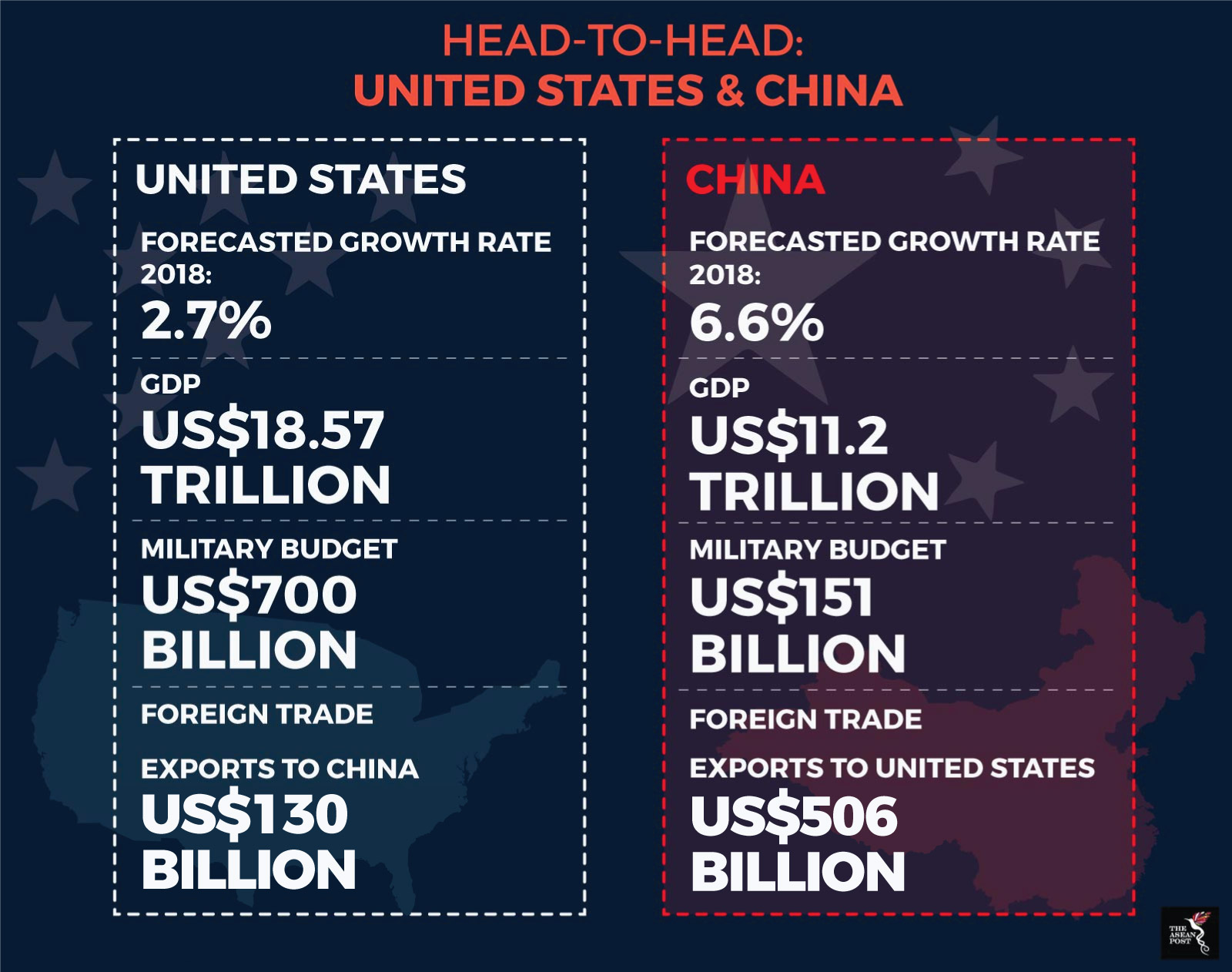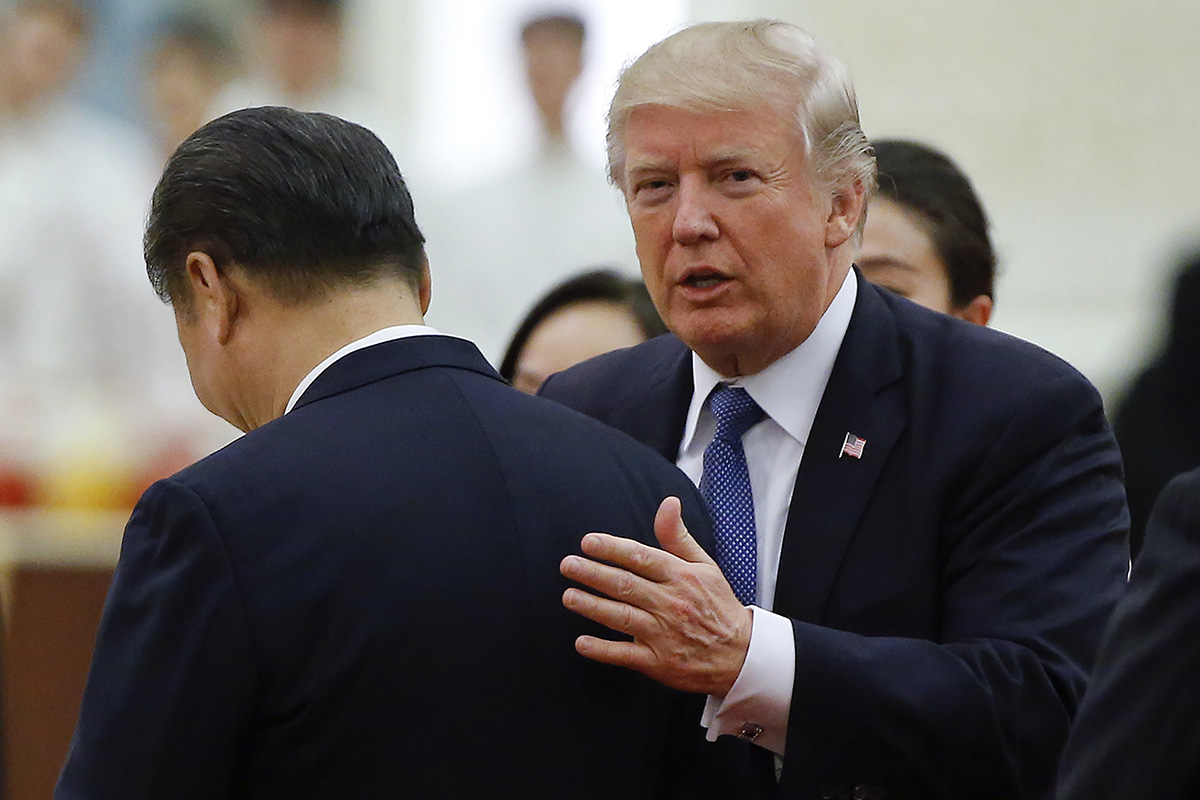Stocks in major markets across the globe surged on Monday morning after United States (US) secretary of the treasury Steven Mnuchin told the international media that a potential US and China trade war was “on hold”.
In New York, the Dow Jones was up more than 300 points while the S&P 500 and Nasdaq index were also making gains. Meanwhile, in China the CS1300 and Shanghai Composite indices ended yesterday up 0.5% and 0.6%.
The movements in major markets around the world were most likely swayed by Mnuchin’s announcement that the US agreed to “putting the trade war on hold.”
The announcement came as a surprise following the first round of talks between the US and China that indicated both countries were at an impasse.
The threat of a trade war first reared its ugly head when the US announced a 30% tariff on imported solar panels and a 20% tariff on washing machines, both of which China are major exporters of. The trade war then further intensified when US president Donald Trump announced plans to impose tariffs on steel and aluminum – exports which China effectively have a monopoly on.
China then retaliated by putting tariffs on several US imports including aircrafts, soybeans, cars and other goods.
Donald Trump’s attacks on China and its exports is not surprising considering his nationalist bent and pledge to reinvigorate local industries. Trump has often used China as a scapegoat for the US’ supposed declining economy. According to Trump, the US’ reliance on Chinese imports are destroying local industries and hurting the US economy. In 2017, the US had a trade deficit worth US$375 billion with China.
In the first round of talks, both countries outlined a series of tough demands. The US demands mostly revolved around reducing its deficit. Bloomberg reported that the US delegation demanded that China cut the trade deficit by at least US$200 billion by the end of 2020, while China wanted the US to stop its 301 investigations into Chinese intellectual property abuses. It also wants the US to drop the planned 25 percent extra tariffs on Chinese goods and to end discrimination against Chinese companies in national security reviews.

Sources: Various sources
The first round of talks ended with analysts predicting that tensions could increase. However, the recent round of negotiations in Washington shows otherwise, evident in Mnuchin’s announcement. In a joint statement released over the weekend, both countries have agreed for “effective measures to substantially reduce” the large trade deficit the US has with China. However, there were no indications that China has accepted the US’ demand for a US$200 billion reduction in the trade deficit.
However, some analysts are skeptical as to how much China could reduce the imbalance. To reduce such a huge deficit, China would have to spend more to buy US goods. Currently, the biggest US exports to China are aircrafts (valued at US$16 billion) and soybeans (valued at US$12 billion). According to reports, China would have to buy 667 more Boeing commercial jets to reduce the deficit by US$200 billion.
For any significant reduction in the deficit, China’s actions would probably cause a disruption in its own economy, and it is unlikely China would do so to assist the US in any significant way. On the other hand, any hesitation on China’s part to reduce the deficit could result in a dissatisfied Trump reigniting the trade war.
Prior to these negotiations, Trump tweeted that Chinese president Xi Jinping and himself were working to give ZTE “a way to get back into business, fast.” It was not revealed whether ZTE was part of the negotiations but many believed that China’s priority was to ease penalties on the Chinese telecommunications company.
ZTE was fined US$1.2 billion by the US Department of Commerce last year for violating sanctions against Iran and North Korea. Later in April this year, the Department of Commerce banned US companies from providing exports to ZTE for seven years for allegedly violating terms of the fine.
This has effectively crippled the company, which is one of China’s biggest leading telecom equipment manufacturers.
Trump has come under intense criticism for his hardline stance against China in this regard. Many believe that if Trump does not ease the penalties against ZTE, China would be happy to continue the trade war.
With China already agreeing to ease the deficit between the two nations, the ball is now in the US’ court. Moving forward would be difficult for the US' negotiating team as they face great pressure not to bow down to Chinese demands. As the US sees itself as the global superpower, any concessions made to China would seem like an admission of weakness. Trump who built his political career on the “Making America Great Again” platform would also be hard pressed to convince his supporters that he is delivering on his campaign promises.
